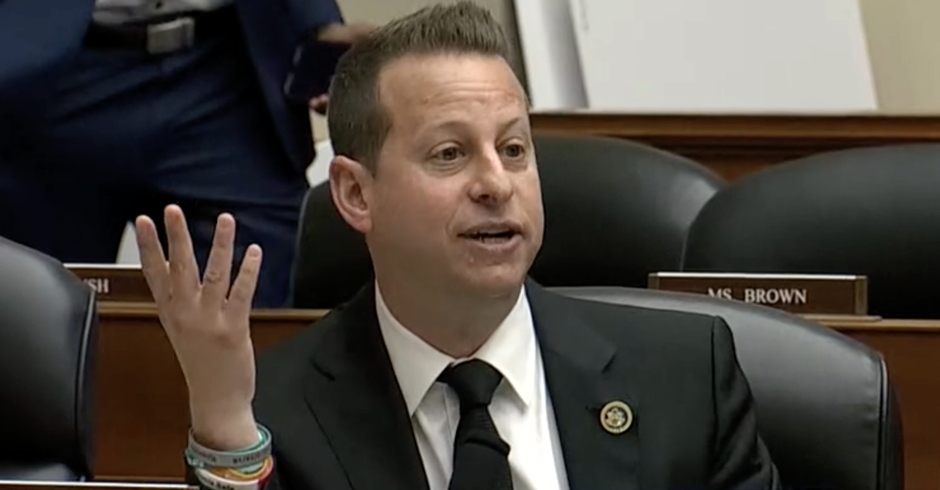The Religious Right’s Campaign to Strip All Citizens of Religious Freedom
Turn on any cable news show and you’ll hear conservatives, particularly from the Religious Right, giving long tirades about religious freedom and how the Left is seeking to strip it away from good God-fearing Americans. But if you watch how the Religious Right works in court, you know that it’s actually the other way around.
Religious freedom has been a strongly-held belief in America since the very beginning. All three branches of government have worked hard to preserve the rights of Americans to choose for themselves whether they wished to be Protestant, Jewish, Catholic, or an atheist. It’s a fundamental part of the system that our country built itself on: the right to believe as you will, and to change your mind about it.
Legislative bodies and the courts have centered those rights around the individual—allowing the individual to choose for themselves how they would or would not believe in a god, rather than imbuing an institution with the right to choose for them.
If you were to believe the talking points of conservative punditryland, you might think that the right to believe (or not) as you will is under attack from the Left, and that no-good liberals (particular the gays) are trying to force Americans to accept their wicked ways and deny those good God-fearing citizens their right to worship in peace.
But how is this actually playing out in the courts and in the legislatures?
Hobby Lobby
In the Sebelius v. Hobby Lobby case before the U.S. Supreme Court right now, the owners of the private for-profit corporation Hobby Lobby chain are seeking an exemption from a provision within the Affordable Care Act that requires that the health insurance their employees receive include coverage for birth control methods such as morning after pills and IUDs. Hobby Lobby’s owners, the Green family (who happen to be evangelical Christians) say that they consider such birth control methods to be abortifacients—despite the medical and scientific community pointing out that they are not—and as such their company should be exempted from the Affordable Care Act because providing their employees with insurance coverage for such methods is a violation of their religious freedom.
Mississippi’s Religious Freedom Restoration Act
On April 1 this year (appropriately), the conservative-controlled Mississippi state legislature passed into law the Religious Freedom Restoration Act, which was quickly signed into law by Governor Phil Bryant (R). The bill allows businesses to turn away customers and/or employees (such as LGBTQ people) because the owner of the business happens to disagree with them on a religious level.
A similar law was passed just a few months prior by the Arizona legislature, but Governor Jan Brewer had vetoed it after coming under enormous national pressure and media scrutiny.
Whose Rights?
What both of these situations highlight is the concerted effort by the leaders of the Religious Right to fundamentally alter the way religious freedom works. Where in the past it has always been applied to—and designed for—the individual, Christian Right legal organizations such as the Alliance Defending Freedom (formerly known as Alliance Defense Fund of Prop 8 notoriety) are seeking to strip those rights away from you and me, and bestow them upon businesses themselves. Those corporate religious beliefs can then be used to circumvent civil rights laws, if they happen to conflict with the businesses’ newly-bestowed conscience.
What does this mean for us? It won’t just affect LGBTQ people. If the only religious beliefs that matter are what your boss happens to believe, employees across the country will be forced into complying with those beliefs or risk their (and their family’s) livelihood and well being. If a business owner happens to belong to a faith that believes women should always be subservient to men, they could legally be allowed to deny women managerial positions (or not hire them at all). Muslims could refuse to hire Jewish workers, or keep them at lower pay rates than their co-workers. White business owners in the South could use religion as an excuse to deny service to Black customers.
Now, neither the Hobby Lobby case or the Mississippi law go so far as to completely open the floodgates for all of these civil rights abuses on their own, but each are significant cracks in the wall. And once precedent is set, the next exemption is that much easier to create.
If we are going to shore up the foundations of religious freedom, it’s going to take more than just quippy catchphrases. The Religious Right has been enormously successful capturing the dialogue, and painting all outsiders, particularly the LGBTQ community, as the enemies of our rights. We’ve got to help the nation understand that the leaders of the Right are seeking to not only strip the religious freedom of LGBTQ people, but of every citizen—no matter what their beliefs.
Eric Ethington has been specializing in political messaging, communications strategy, and public relations for more than a decade. Originally hailing from Salt Lake City, he now works in Boston for a social justice think tank. Eric’s writing, advocacy work, and research have been featured on MSNBC, CNN, Fox News, CNBC, the New York Times, The Telegraph, and The Public Eye magazine. He’s worked as a radio host, pundit, blogger, activist and electoral campaign strategist. He also writes at NuanceStillMatters.comÂ
Follow Author Eric Ethington on Twitter @EricEthington

Enjoy this piece?
… then let us make a small request. The New Civil Rights Movement depends on readers like you to meet our ongoing expenses and continue producing quality progressive journalism. Three Silicon Valley giants consume 70 percent of all online advertising dollars, so we need your help to continue doing what we do.
NCRM is independent. You won’t find mainstream media bias here. From unflinching coverage of religious extremism, to spotlighting efforts to roll back our rights, NCRM continues to speak truth to power. America needs independent voices like NCRM to be sure no one is forgotten.
Every reader contribution, whatever the amount, makes a tremendous difference. Help ensure NCRM remains independent long into the future. Support progressive journalism with a one-time contribution to NCRM, or click here to become a subscriber. Thank you. Click here to donate by check.
 |






















